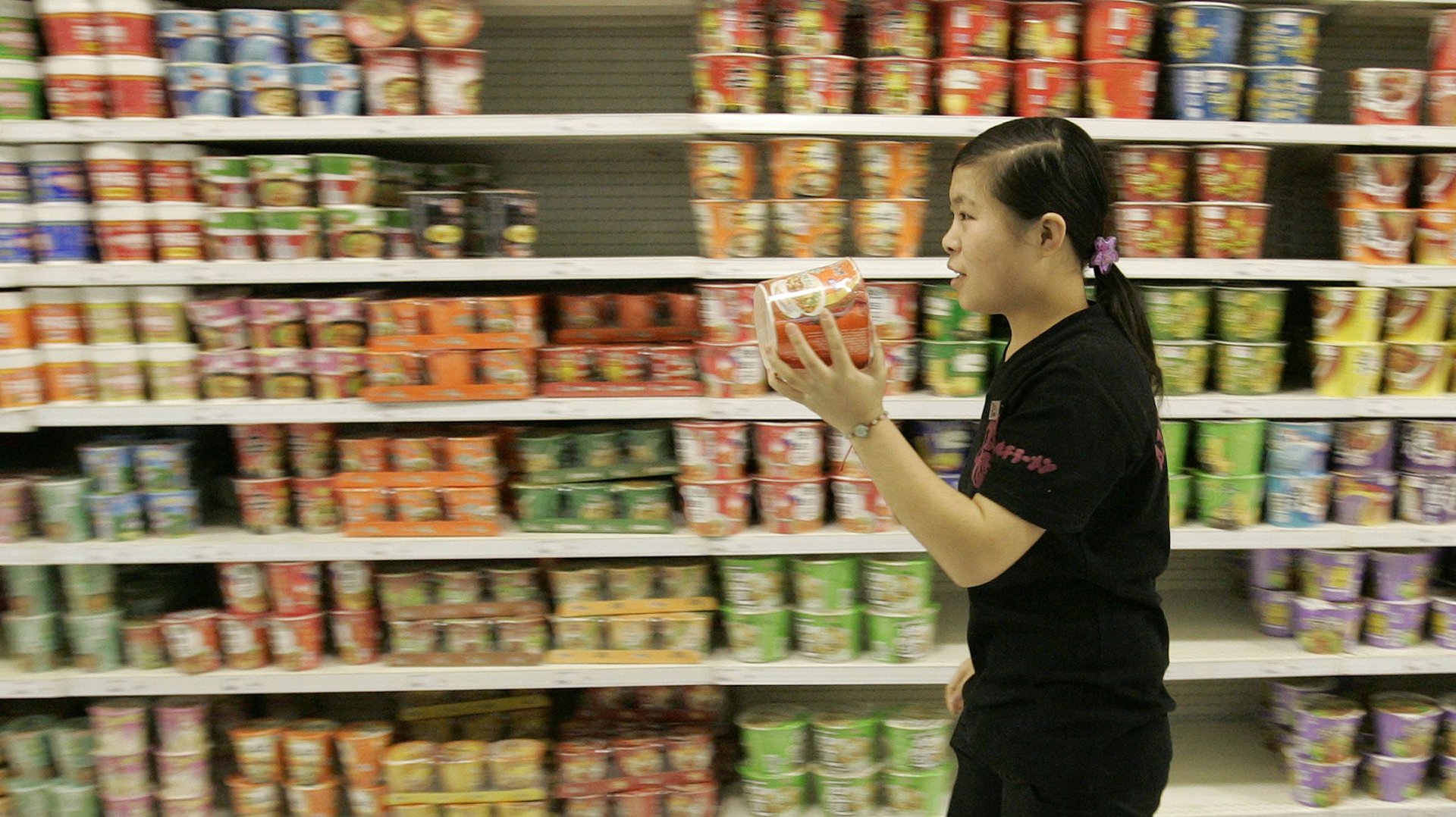By 2015, China will be the world’s largest consumer of processed food
In China, the traditional diet of vegetables, rice, noodles, and small portions of meat—a diet hailed as one of the world’s healthiest — is disappearing. Chinese people are eating more Western food, more meat, and on top of that—more packaged, on-the-go food that comes with additives, artificial flavoring and other chemicals.


In China, the traditional diet of vegetables, rice, noodles, and small portions of meat—a diet hailed as one of the world’s healthiest — is disappearing. Chinese people are eating more Western food, more meat, and on top of that—more packaged, on-the-go food that comes with additives, artificial flavoring and other chemicals.
According to estimates by Euromonitor International, in terms of volume, the Chinese market for packaged processed food like ready-made meals, snacks and drinks like cookies, chips, and soda will surpass America’s by 2015. China could consume as much as 107 million tonnes of packaged food, compared to 102 million tonnes in the US.
That still means the average Chinese resident will eat only about a quarter as much processed food as the average American. And the American market will still be worth more ($369 billion versus an estimated $238 billion in China.) Still, Chinese consumption of these foods will have grown 66% from 2008, according to Euromonitor.
What’s fueling that growth? As more Chinese leave farm life for the cities and more women enter the workforce—the same trend that sparked America’s TV dinner craze in the 1950s—there has been a boost in convenience foods from baby formula to frozen dumplings and instant noodles. Increasing wealth has meant that more Chinese are eating more meat than before. The entrance of packaged food makers like Kraft, Nestlé or PepsiCo has increased the consumption of Western-style snacks at 7-Elevens and other convenience stores, ubiquitous in Chinese cities.
International as well as domestic companies are banking on this growing appetite. China’s market for cookies is estimated to be worth $24 billion, and growing some 20% a year. Campbell’s Soup announced its acquisition of Denmark’s Kelsen Group, whose butter cookies are a hit in the country, in June. Western snacks like granola bars, cereal, and pasta are all becoming more popular, Euromonitor says.
But this change in diet is bringing health problems. Almost 12% of adults, or 114 million, have diabetes, according to new data. Researchers say China is facing “a major epidemic of diabetes-related complications” from cardiovascular disease and strokes to kidney disease. Childhood obesity is also rising. And Chinese consumers, unlike Western ones, generally don’t have the option of healthier, often pricier, packaged food. “The major consumer in China doesn’t have as much to spend on their products,” says Lauren Bandy, an ingredients analyst at Euromonitor. “So they’re not really able to afford packaged food with these other added value ingredients like vitamins or preservative free [items].”